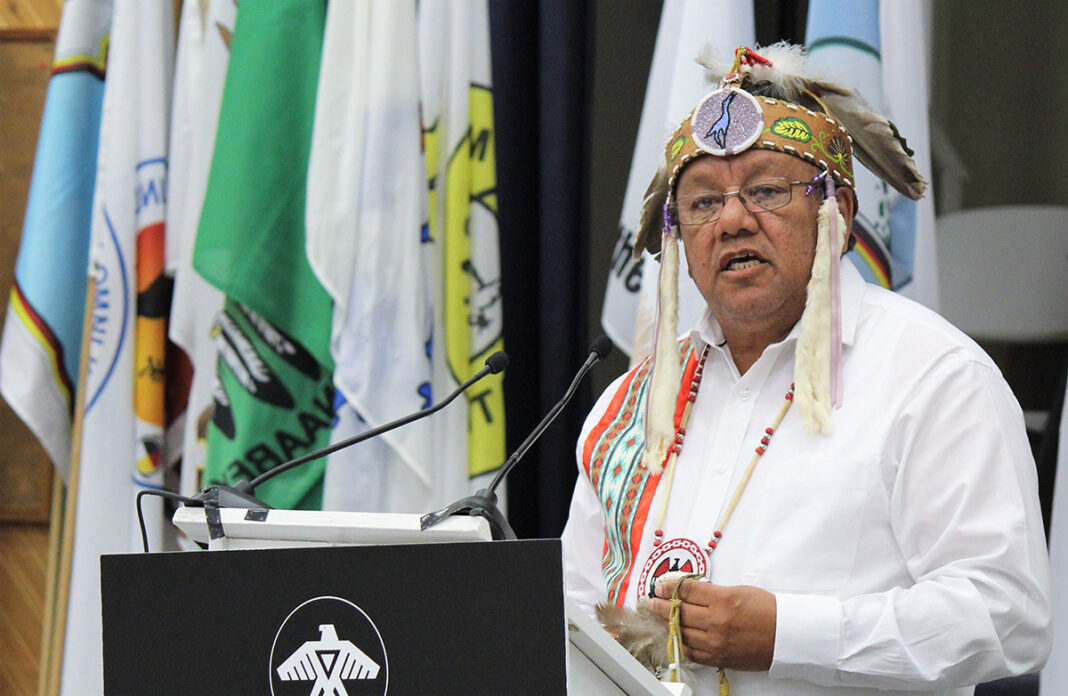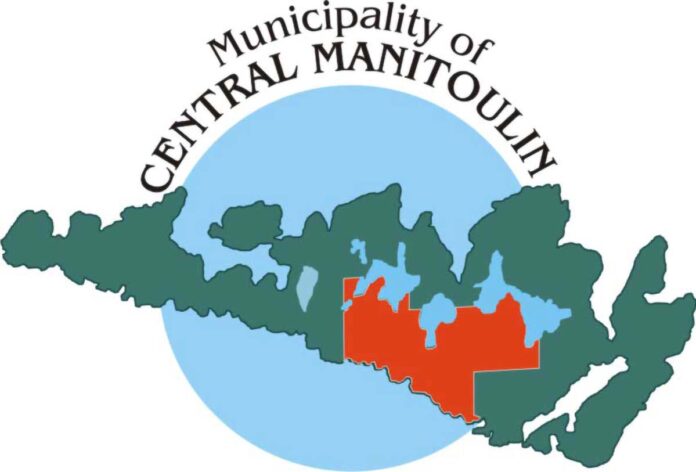MANITOULIN—Ontario Regional Chief Glen Hare says it is unacceptable that a $2 million contract has been reached between the federal government with an international group to give advice on unmarked graves. Anishinabek Nation leadership says it trusts Indigenous survivors, communities and experts to guide unmarked burial searches regardless of the federal deal with an international group.
“I don’t know why in the world they would go with a group that far away to find out about something that happened in our history. It is unacceptable. They should be approaching our communities to do this work,” stated Regional Chief Hare.
“It sounds like the federal government has more money than they know what to do with and are spending it.”
This comes after the National Centre for Truth and Reconciliation says there are many problems with a $2 million contract Ottawa signed with an international group to give advice on unmarked graves.
The centre says it is ‘deeply concerned’ with the decision by Crown-Indigenous Relations and Northern Affairs Canada to hire a Netherlands-based organization to launch “an extremely sensitive engagement process” on issues surrounding possible gravesites near former residential schools.
The federal government recently announced it had hired the International Commission on Missing Persons to provide it with advice, based on an outreach campaign with different communities interested in hearing possible options around DNA and other forensic techniques.
Last week, the commission released a copy of the technical agreement it had signed with the government in January confirming the final report will be due to the federal government by mid-June, with officials allowed to comment on drafts.
Stephanie Scott, executive director of the National Centre for Truth and Reconciliation, says seeing the agreement itself raises more questions.
Eugene Arcand, who sits as a member of its survivor’s circle, says he cannot understand why Ottawa would look to an international group that lacks knowledge of the residential school system and ‘cultural competency’ needed for such sensitive discussions.
The centre says it has already raised concerns with Crown-Indigenous Relations Minister Marc Miller and plans to make more recommendations. His office says that the agreement is subject to amendments to be ‘jointly considered’ by federal officials and the international commission.
The agreement itself also states Indigenous facilitators will be hired to be present at the discussion and meet the ‘spiritual and ceremonial’ needs of participants throughout the process.
Anishinabek News reported February 23 that Anishinabek leadership is confounded by the recent announced of the $2 million agreement. The arrangement is structured to produce a report giving recommendations on identifying and uncovering human remains at the sites of former Indian Residential Schools.
Anishinabek Nation Indian Residential School portfolio holder and Anishinabek Nation Lake Huron Regional Deputy Grand Council Chief Travis Boissoneau expressed bewilderment on the federal government decision to use the international group when there is a Special Interlocutor already functioning and carrying out these same goals.
“We shouldn’t be finding out about this deal after it is already in the process of being finalized,” Chief Boissoneau told Anishinabek News. “Where was the consultation and engagement with First Nations and Survivors of Indian Residential Schools and their families to determine if this was necessary and supported? Why not further support these Indigenous leaders who are well-known and trusted across the country?”
Kimberly Murray had been appointed in 2022 as the Independent Special Interlocutor for Missing Children and Unmarked Graves and Burial Sites to make recommendations for a new federal legal framework to ensure the respectful and culturally-appropriate treatment of unmarked graves and burial sites of children associated with former Indian Residential Schools.
“We are uncomfortable with the fact that Canada did not follow the recommendations of the jointly appointed Indigenous experts that are just beginning their work. Is the federal government impatient to close this dark chapter by seeking to outsource reconciliation?” asked Anishinabek Nation Grand Council Chief Reg Niganobe. “The concept of reconciliation is difficult to contemplate when we are not yet done reclaiming the remains of Anishinabek children whose lives were unjustly and inhumanely ended by genocide. The act of remembering our ancestors is part of traditional law, and we need to reconnect with their spirits to move forward with any possibility of healing intergenerational trauma,” he told Anishinabek News.
“We know what we are doing, how to do it and what we are looking for,” said Regional Chief Hare. “I just don’t understand why the government is getting a group from the other side of the ocean to carry this out. It just doesn’t make any sense at all. They don’t have the experience and knowledge on it. We already know what to do. Give us, our communities that funding if they can’t find anyone else in Canada or the region to carry out this work.”





